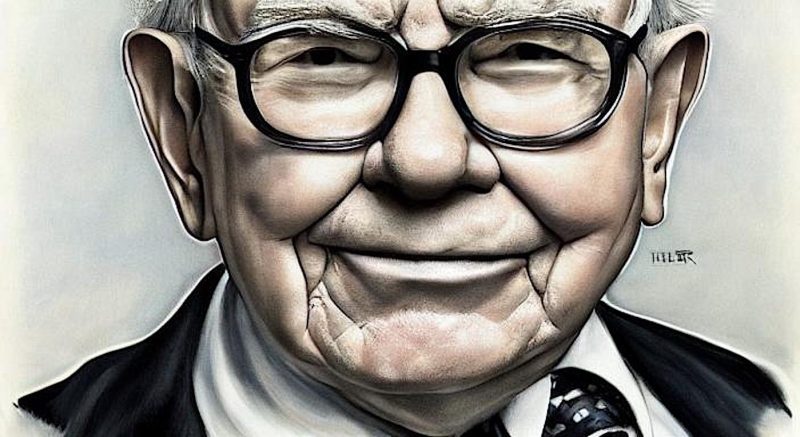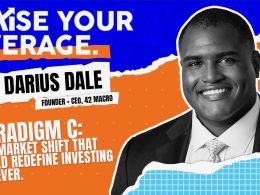by William Smead, CIO, Smead Capital Management
Dear fellow investors,
Barry Bannister, Managing Director and Chief Equity Strategist at Stifel, put out an excellent research piece on future returns based on what industry folks call the “equity risk premium.” He says that investors in U.S. common stocks are looking forward to no more than a 3% real return over the next decade from the S&P 500 Index and shows his reasoning in the following chart:
Ironically, this is exactly the argument that Warren Buffett made in 1999 in his lectures at the Allen and Co. Summit in Sun Valley and in private gatherings of friends shared in the November Fortune magazine of 1999 (link). Buffett spoke of a “Biblical symmetry” that markets have between the valuation/popularity of stocks and future returns. He, like Bannister, believes that the historically repetitive moves between stocks in the penthouse volunteer the stock market a place in the future investor outhouse.
Not ironically, Buffett has been selling massive quantities of companies like Apple (AAPL) and Bank of America (BAC) despite the fact that he says his favorite holding period is “forever!” Buffett has also built a massive cash hoard, which is approximately 30% of the Berkshire Hathaway market capitalization. In stock picking, this is the equivalent of the Dodgers asking the other baseball team to intentionally walk Shohei Ohtani. Why would the greatest stock picker of all time not want to pick stocks?
Here are the reasons he gave in 1999:
- Investors are expecting too much from stocks. Bannister argues that we are in “Groundhogs Day,” because it has been over 20 years since investors got burned by what Buffett warned about back then. U.S. households have three times as much of their Federal Reserve Z-1 report household assets in stocks as they did in 1982.
- The “Biblical symmetry” has to do with how expensive stocks are and how low or high interest rates are. Bannister didn’t have to point out how low rates are, but it shows up in tiny equity risk premiums.
- Stock returns are anchored somewhat to GDP growth via corporate profits, but are more affected by what interest rates do. From 1964-1981, the economy grew 370%, and the Dow Jones Industrial Average (DJIA) went nowhere. It grew 200% as interest rates plummeted and the DJIA exploded for 17 years from 1981-1998.
- Interest rates have a direct effect on corporate profits as a percentage of GDP. Buffett was mortified in 1999 when they reached 6% of GDP. Bannister’s concerns are timely because the profits of public corporations are 11% of GDP. At some point, those percentages will revert to the mean, and that is when the equity risk premium will expand.
- Lastly, Buffett and Bannister recognize that stock market psychology is like Pavlov’s dog. Each day the stock market opens, and everyone from day traders to retirees line up at the trough to get their amazing returns. We like to say, “Dogs chase cars, and people chase stocks.” Unfortunately, it works both ways. From 1999-2009, people fled stocks like they were avoiding a disease, as they did from 1969-1982.
Our solution to these circumstances is running a concentrated portfolio of stocks that could be attractive to investors for reasons separate from the movement of the stock market itself. Oil and gas shares are offering an addictive legal drug and should do well in an inflationary environment where interest rates return equity risk premiums to normalized levels. Value has been relatively cheap for too long because there has been no reason to trust value for an extended period of time. Stocks like Target (TGT) and Merck (MRK) could do well from demographic sweet spots. U-Haul (UHAL) and home builders could benefit from the urge of 180 million people below 40 years of age to be “free to move about the country” to find affordable places to live.
In conclusion, our job as stock pickers is to stack probabilities in the favor of our shareholders. Warren Buffett and Barry Bannister have offered a timely meeting of the minds. We like to say, the only thing better than being smart is knowing who is!”
Fear stock market failure,

William Smead
The information contained in this missive represents Smead Capital Management’s opinions, and should not be construed as personalized or individualized investment advice and are subject to change. Past performance is no guarantee of future results. Bill Smead, CIO, wrote this article. It should not be assumed that investing in any securities mentioned above will or will not be profitable. Portfolio composition is subject to change at any time and references to specific securities, industries and sectors in this letter are not recommendations to purchase or sell any particular security. Current and future portfolio holdings are subject to risk. In preparing this document, SCM has relied upon and assumed, without independent verification, the accuracy and completeness of all information available from public sources. A list of all recommendations made by Smead Capital Management within the past twelve-month period is available upon request.
©2024 Smead Capital Management, Inc. All rights reserved.
This Missive and others are available at www.smeadcap.com

















